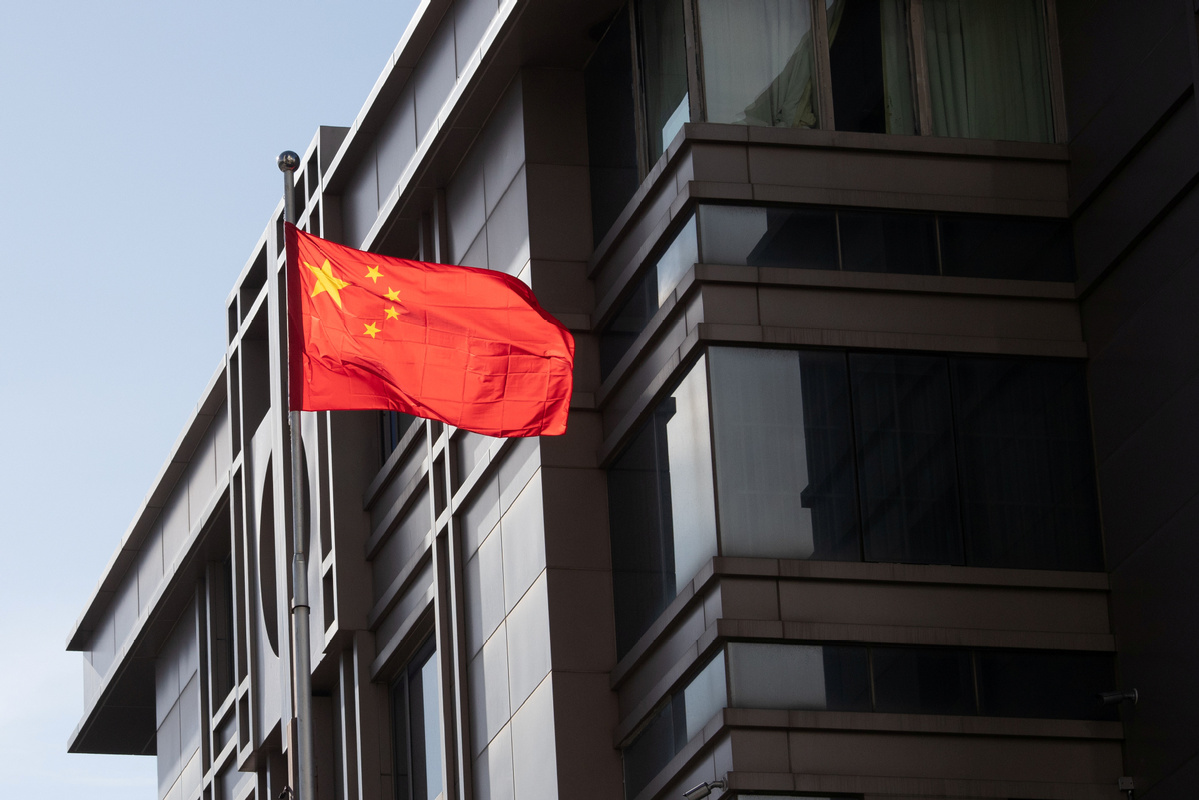Houston feels the void after consulate closure
Experts: China's consular presence in US needed for regular exchanges
By MAY ZHOU in Houston | China Daily Global | Updated: 2024-10-29 10:01

It has been more than four years since the Chinese Consulate General in Houston was shut down by the administration of then-president Donald Trump. Its absence is still felt by many, including two people who worked with the consulate in the past to facilitate exchanges between the United States and China.
Immigration lawyer Charles Foster was the chairman of the Asia Society Texas Center for more than two decades. In that capacity and more, Foster has facilitated countless exchanges between the two countries — from moderating a US-China discussion to being instrumental in putting Houston on the itinerary of former Chinese president Jiang Zemin during his 2002 visit to the US.
"Having been active in the international community in Houston as well as in the consular corps for many years, I was very familiar with the Consulate General of the People's Republic of China located on Montrose Boulevard, not that far from my home. I would have attended many receptions in and other activities sponsored by the Consulate General," Foster said.
The Consulate General in Houston was closed in July 2020 over US allegations that it operated outside ordinary diplomatic norms, claims that China termed "malicious slander".
Foster said he never understood the shutdown "at a time of tense relations between the US and China".
"I had no knowledge of the actual facts from any source other than the fact that embassies and consular posts worldwide provide useful data about the country in which their officials are serving in order to provide their home country a more complete picture of issues impacting the bilateral relationship," he said.
He said that "it is in the best interest of both countries to maintain diplomatic representation precisely with which there are significant business and other ties, and even more so if there is tension in the relationship".
Texas, like the rest of the US, has developed a strong cultural and economic relationship with China, thanks to a large population of Chinese Americans in the state, particularly in big cities such as Houston and Dallas.
Those people, with family and other ties to China, over the years have helped facilitate the extraordinary growth in business between the US and China, Foster said.
According to the 2023 US Exports to China report by the US-China Business Council, Texas ranked as the top state in the US in goods exported to China in 2022 worth $21.8 billion, followed by California with $17.7 billion.
In 2023, Texas' exports to China grew to $25.7 billion, according to data from Statista, a German data agency. Energy products and machinery were among the top Texas exports to China, according to the state government.
The absence of the consulate impedes such exchanges, Foster said.
"Trade is facilitated through many agreements and related documentation, much of which is required to be legalized," he said. "That requires the assistance of the consular post, and all of this has been complicated by the fact that these services are no longer available in this region."
Now, both individuals and companies seeking the necessary visas or legalization of documents have to do so in Washington, which results in "additional costs, time and frequent delays", Foster added.
Absence benefits no one
That sentiment was shared by David Firestein, CEO and president of the George H. W. Bush Foundation for US-China Relations.
As a former diplomat who once worked at the US embassy in Beijing, Firestein said that he understands the need for a consular presence.
"Given the importance of Texas as a state, and Houston as a city, to say nothing of the entire consular district that was covered by the Consulate General, it just seems really unfortunate, from a US standpoint, to not have Chinese government representation there," he said.
"It's just as unfortunate for all involved that we don't have government representation in Chengdu anymore as a result, either."
China had to close the US consulate in Chengdu, Sichuan province, in 2020, a week after the Houston consulate was ordered to close.
The Houston closure doesn't benefit anyone, he said. "It obviously inconveniences a lot of people. It makes it more difficult for people in this region of the United States to get visas and to engage directly in all the things that are associated with diplomacy, people-to-people exchanges and so on."
Firestein had communicated with the Chinese consulate on matters related to the work of the Bush China Foundation.
"We would see the consul general pretty regularly, and we would have opportunities to discuss the bilateral relationship, discuss delegations going in both directions, and exchange views," he said.
"When it comes to things like applying for visas, it was really convenient to be able to make a quick trip from Austin to Houston to be able to deal with those kinds of matters rather than having to go to DC," he added.
Firestein said that he has built "a strong and solid line of communication" with the Chinese embassy in Washington, which has taken over all the work in the eight US states and Puerto Rico, a self-governing commonwealth, under the area of the Houston consulate "for discussion on track-two diplomacy work and other bilateral issues".
However, it's no longer possible "to see each other face to face as often or as conveniently or as inexpensively as was the case when there was a Consulate General", he said.
The Chinese consulate in Houston was the first to open following the normalization of US-China relations and late leader Deng Xiaoping's historic visit to Texas in 1979.
"So, in the 45th year of normalized relations, it's particularly unfortunate that this particular consulate had to be the one that was the casualty at a symbolic level," Firestein said.
Firestein said that reopening both consulates would be an easy way to move the bilateral relationship in a relatively more positive direction, but he doesn't see that sentiment in Washington right now.
In this regard, Foster is a bit more optimistic. "It's possible that this will occur in the first term of the next president of the US," he said.
























